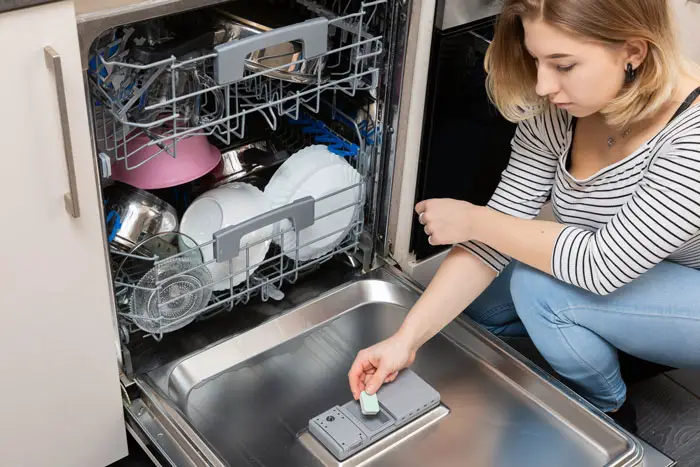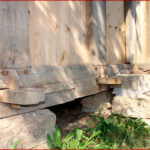Bosch and Miele are two of the best dishwasher brands on the market today. They both characterize the pinnacle of dishwasher design and maintain an uncompromising focus on superior quality, flexibility, and quiet cleaning performance.
While both options deliver a powerful washing performance, each brand boasts its own unique innovations to dishwashing, making it hard to choose between them. So, in this article, we will discuss everything you need to know when choosing between these two highly-reputed dishwasher brands.
Miele Dishwasher Brand: Overview
Founded in 1899, Miele has been a family-owned global premium brand for household and commercial appliances with the highest quality standards. They specialize largely in kitchen and laundry room appliances, producing most of their products in Germany.
According to the company’s website, the brand strives for quality, flexibility, and ease of use. And their products are rigorously tested.
Bosch, on the other hand, has been producing appliances that are invented for life since 1906. They specialize in kitchen appliances borrowing much inspiration from European designs. Today, the brand offers a diverse line of built-in appliances such as dishwashers and cooktops for an integrated seamless kitchen.
Now let’s find out what happens when you put a Miele against a Bosch dishwasher.
Table of Contents
Miele vs. Bosch: Which Dishwasher Brand is Better?
Miele and Bosch’s dishwashers are often considered the best on the market for a good reason. These German products are purchased by millions for their excellent quality, design, features, and cleaning power. But how do these two brands stack up in six major aspects of dishwasher quality?
Miele vs. Bosch: Visual Design Differences?
As the cultural tastes of interior décor have changed over time, Miele and Bosch’s designs have changed along with them. However, that doesn’t mean they have sacrificed quality for good looks. In fact, they have simply improved their visual approach to matching what the modern market demands.
The most popular finish for models in both brands is stainless steel, a look that both Miele and Bosch pull off with effortless style and sophistication. Another thing that has remained consistent across both brands’ success has been their commitment to the minimalist, sleek design.
Even their latest, most fully-featured flagship models tend to showcase a sleek façade with as few visible buttons as possible. That said, both manufacturers offer specialty ADA dishwashers to fit raised floors, a8-inch width dishwashers for small kitchens, and panel-ready dishwashers to blend with adjacent cabinetry.
Bosch features many distinctive styles such as their flagship pocket handle, bar handle, recessed handles, and so on. Likewise, Miele has a minimalist design and a compelling lineup with various door styles as well as handles to match a range of appliances.
It’s good to note that, unlike their American counterparts, both Bosch and Miele dishwashers will not stick out of your kitchen cabinets. Yet, their interior design remains extremely efficient.
Quiet Performance
When it comes to quiet performance, Bosch is well-recognized for making incredibly quiet dishwashers. Their Bosch 800 series, for instance, include models with noise capping out at 40 dB, and some as low as 39 dBA. The famous Bosch Benchmark series boasts models with a 38 dB rating, which is much softer than the sound of a quiet whisper.
Miele dishwashers, on the other hand, won’t wake up anyone in your home either. Most of the company’s models boast a 38 dB noise level, so you won’t hear them working.
In comparison, both companies take noise levels seriously. Neither Miele nor Bosch resort to common tricks such as measuring noise during wash operation while skipping water intake and pump-out sequences. So whether you’re opting for Miele or Bosch dishwasher, the noisy operation will never be a concern.
Cleaning and Drying Performance
With an extensive range of reliable wash cycles and an interior tub silhouette that allows fast, safe drying, you can rest assured that both Miele and Bosch appliances will always clean your dishes while keeping them free from damage or other unnecessary wear.
What concerns you most when making your buying decision is what matters most to you; more effective and speedy drying or more robust and unique types? Paramount loading space or organized, flexible storage racks? Be sure to check the features section below for more information.
When comparing these two award-winning dishwasher brands on the market, the difference in performance is negligible within comparable price bands. It’s important to state that Bosch offers many dishwashers options for under $800 while Miele takes over the high-end feature-rich segment of $1, 399-$2,499.
Miele vs. Bosch Dishwashers: Features
Both manufacturers offer all of the great features you can expect from a modern dishwasher. In fact, both Miele and Bosch are deemed as the front-runners of innovative dishwasher technology.
While most people prefer a clean stainless interior, Miele is recognized for offering stainless steel interiors on all of their dishwashers. Bosch also features all stainless interiors, with the exception of the entry-level Ascenta series.
Both manufacturers offer condensation drying, which allows moisture to be absorbed by the stainless steel walls and washed down. Bosch took this technology to a whole new level in their 2018 release by pumping extra heat to the dishwasher cavity. Miele, on the other hand, elevated this technology even further with the ability to circulate ambient air to absorb remnant moisture.
Other features that make both brands stand out to just about the same extent include interior lights, an auto-open door for drying, a cutlery tray rack, an auto-close door, and a water softener. Shoppers will also get to enjoy a number of spray arms and leak prevention, as both manufacturers design their models to detect leaks and shut down water sources.
Miele vs. Bosch: Durability
Miele is often considered the most highly integrated manufacturer of appliances in the world. Nearly every unit of their parts are manufactured directly by the company itself.
Perhaps that’s why they advertise a 20-year lifespan of regular use without any issues in functionality. Miele products are made to keep on working for decades, which is evident in every part from buttons to the racks and even the appliance casters they glide on.
Bosch, on the other hand, is no different when it comes to durability. Their dishwashers are designed to withstand a minimum of ten years of use. Moreover, their dedication to utilizing only the highest-quality parts has long been a hallmark of the brand.
Miele vs. Bosch Price
Bosch leads Miele in terms of general affordability. For instance, Bosch 100 series dishwashers are stripped down in functionality such that they typically feature plastic tubs and cost about $600. Their 300 and 500 series boast some of the most features desired by the modern market and are offered at a price lower than $800.
Unlike Bosch and many other brands, Miele does not compromise on the quality and features of their dishwashers based on the model series. However, that does not mean Miele appliances are overpriced; they fairly occupy a slightly more high-end space within the market.
With those premiums Miele models come more powerful operations, additional features, and advanced functionality. From the entry-level to the commercial line, all Miele machines share the same industrial pump system. They are all heavily tested and feature the latest technology.
The Bottom Line
Deciding whether to purchase Miele or Bosch is a decision with no shameful outcome. Both manufacturers have proven a decades-long history of providing consistent, long-lasting durable, and downright beautiful appliances that are a pleasure to use.
The ultimate choice between Miele vs. Bosch depends largely on your budget and which design features interest you most. After all, you’ve already done a great job narrowing your search to these two world-class dishwasher manufacturers.


